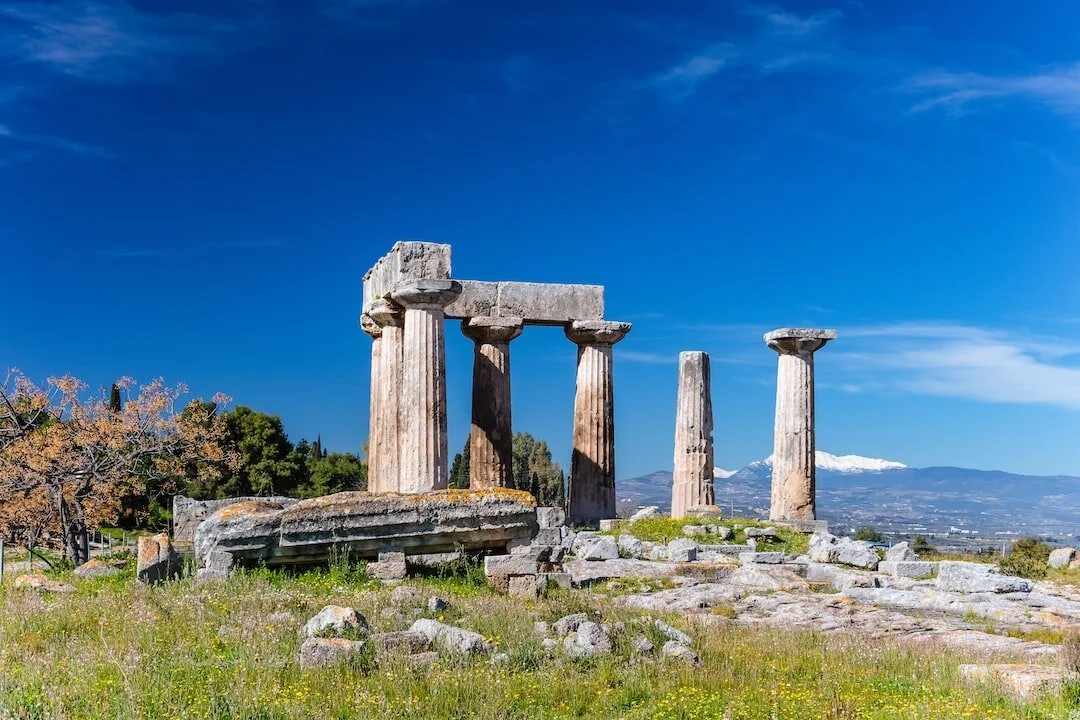And so we come to the end of this extraordinary letter. Written almost 2,000 years ago, it – like all of Scripture – speaks profoundly and poignantly to today’s Church. The universal (i.e. catholic) relevance is a characteristic of the Spirit-inspired Scriptures, and it should never surprise us that these ancient texts speak so powerfully and directly to us, in a different time, place and culture. Christ speaks through His Apostle, and the life-giving power that called a Church into creation, speaks today by the Spirit.
And yet the Church at Corinth has been calling Paul’s ministry as an Apostle into question. They have put their spiritual father (I Cor.4:15) in the proverbial dock. They have presumed to act as judge and jury, demanding that Paul prove himself to them, authenticate himself as a minister of the Gospel. All the way through Paul has played along, but now comes the sting in the tail: Examine yourselves (v.5). There is a subversive irony at play here, one that has been lurking just below the surface all the way through II Corinthians. If Paul passes their ‘tests’, he actually fails as an Apostle. The Corinthians’ judgment is so skewed, their perspective so worldly and infantile (I Cor.3:2), their spiritual understanding so distorted, that if in their eyes Paul is vindicated, then his ministry is in real terms invalidated.
The weird position they find themselves in at the end of the letter is that if Paul does turn up with their longed-for display of power, it will be for rebuke and discipline. But if Paul’s letter successfully leads them into full repentance and reconciliation with Paul (and therefore with Christ), then there will be no fireworks, no spectacular display of Spiritual authority. That’s why he would be thrilled if he seemed to have failed (v.7). Of course, actual failure would be if he had been unable to win them back to their Heavenly Bridegroom. Then Paul would pass their test of demonstrating power, but it would be for their ‘tearing down’ (v.10).
If they – by their refusal to hear Christ speaking through Paul (v.3, likely with John 10:4 in mind) – fail Paul’s test and it turns out they’re not ‘in the faith’, then Paul also fails… for there was never a genuine Church at Corinth. There are only two choices facing Corinth. recognize Christ’s voice and return to faithfully following Jesus as preached by the Apostles; or refuse to acknowledge that Christ speaks through Paul, thus proving they were never His sheep in the first place. Of course, Paul knows better…
Questions:
Is Paul’s language in v.2 and v.10 abusive? How would you react to a Christian leaders speaking like that to a congregation today?
What does Paul (and the Corinthian Church) mean when they speak of Christ speaking through him (v.3)? How does that affect how we read the letters of Paul (see similar claims at I Cor.2:10-13; Gal.1:11-12; I Thess.2:13 etc.)?
How do you respond to the idea that Paul takes a step away from the teaching of Jesus, misrepresenting Jesus, or even that Paul is teaching something altogether different from Jesus?
How does our weakness give space for God’s power to be at work? How should that affect how we live, and how we share our faith? How can MIE ‘boast’ in our weakness?
How should we ‘examine’ and ‘test’ ourselves? What does that look like in our own experience? Does this idea seem introspective, or spiritually unhealthy to you? What do you think Paul envisages? What should such self-examination lead to?
What would it look like for Paul’s prayer of v.9 (see also v.11) to be answered? How would that affect the life, ministry and mission of the Corinthian Church?
How far can we expect Christians to ‘be of one mind’ (v.11)? Why do you think that Christians who sincerely study Scripture arrive at different conclusions about so many key issues? Is Paul’s exhortation here (see also I Cor.1:10, where Paul calls them to ‘be perfectly united in mind and thought’) naïve? Why do you think he makes this point at the start and end of his correspondence with them?
Does the promise of God’s presence stand or fall with how faithfully we fulfil the conditions of v.11? If we don’t encourage one another, if we aren’t of one mind, if we don’t live in peace, then is God not with us?
Should we obey v.12?
May the grace of the Lord Jesus Christ, and the love of God and the fellowship of the Holy Spirit be with you all.













